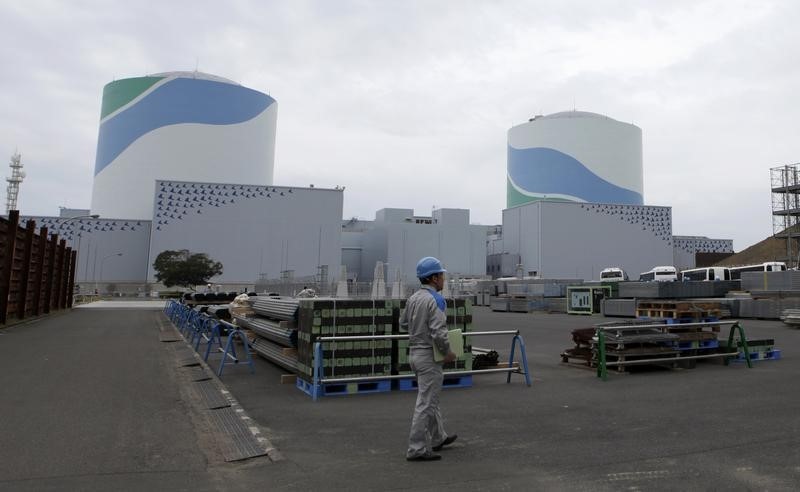(Reuters) – Japan’s nuclear regulator gave the go-ahead on Wednesday for the restart of a nuclear power station, the first step to reopening an industry that was mothballed after the Fukushima disaster and which may involve the definitive closure of a dozen old plants.
The Nuclear Regulation Authority (NRA) said Kyushu Electric Power’s two-reactor Sendai plant in southwestern Japan could restart, although that still needs the approval of local authorities.
Japan is nearing the end of its first full year without nuclear power since 1966 and public mistrust of the sector remains high after the 2011 Fukushima disaster, the worst since Chernobyl in 1986.
The government is pressing regulators to make the tough decision on whether to decommission the oldest of the country’s 48 reactors, which face higher safety hurdles than the rest.
Weeding out reactors that are 40 years old or more may help win public trust in the rest of the industry.
“For myself, I would like to proceed with smooth decommissioning (of some plants) and at the same time the restart of nuclear power stations certified as safe,” Yuko Obuchi, the new minister for economy, trade and industry, who oversees the nuclear industry, said last week.
The government has been pressing for the restart of reactors that receive safety approval from the NRA to reduce Japan’s reliance on expensive imported fuel.
The push for a reckoning on some plants is “clearly part of the strategy by the government and utilities to send a signal to the people of Japan that they are listening and taking into account the lessons of Fukushima”, said prominent nuclear-power critic Arnie Gundersen, director of Fairewinds Energy Education.

COMMENTS
Please let us know if you're having issues with commenting.